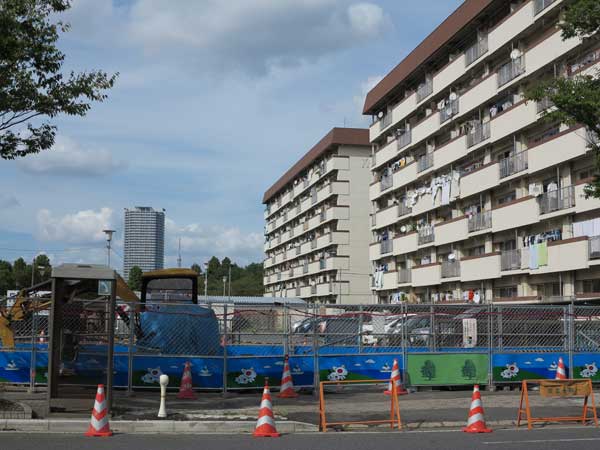
東京では、いつもどこかが工事をしています。辰巳団地から、たくさんの重なる層が見えます。背景に、スカイツリーとヘリポートがある高級マンション。前景には、団地や電話ボックス。
Tokyo is a city always being re-built. In this frame, you see the telephone booth in the midst of street repair, the 1960s Bauhaus-style public housing called “danchi,” and in the distance Sky Tree and a recent luxury tower with heliport. I am fascinated by the heliports on the new luxury towers by the waterfront. Are they a requirement for safety? Or a marketing tool for real estate companies? Should the 99% without access to heliports be concerned?

